Filmmaking couple, Felix van Groeningen and Charlotte Vendermeersch joined forces to write and direct this quiet, profoundly lyrical and meditative movie together. They set out to explore unbreakable connections and the kind of love that exceeds and overcomes everything. The Eight Mountains is a moving story about friendship and finding yourself through time, connections and experiences.
The movie is based on the celebrated first novel by Paolo Cognetti and was adapted to the big screen as an Italian-Belgian-French co-production. Fundamentally, it is a coming-of-age piece that takes us on a breath-taking ride from the bucolic idyll of childhood through the challenging, tumbling years of young adulthood to fatherhood as well as professional ups and downs.
Two boys bond during their summers spent in the embrace of the Italian Alps. Bruno is the last child in his small village, Grana (14 inhabitants). His father works abroad and his mother we do not know anything about – most probably, Bruno knows just about the same. He is from a cheese-making farmer family where hard work starts with the first rays of sunshine and no weekends or downtime exist. Pietro, or as his friend calls him “Berio”, is a city boy from Torino who spends his summer vacations with his mother (Elena Lietti) in their tucked away countryside home. Since there are no other kids around, the two go on adventures in valleys, lakes and stables together.
Pietro’s father, Giovanni (Filippo Timi), works as an engineer at a multinational company, and is grown distant from his family. He is a middle-class man whose incapability of upscaling in society makes him jaded and burnt out. He only finds peace and zest in his beloved mountains. As Bruno and Pietro put down the foundation of a life-long friendship, Pietro’s father starts taking them on hair-raising hikes and to nearby glaciers. These shared experiences leave a never-fading mark on both boys.
The name Pietro has a strong Biblical connotation. In Greek, it translates to “rock”. Even though sometimes circumstances drive the boys from each other, Pietro never stops being the rock in Bruno’s life. After a 15-year-long hiatus in their rapport, Pietro’s father passes. Following up on a promise Bruno has made to him, the two – now grown men – have the task to build a stone house in the mountains. Months of sweat-soaked work brings them back together. They speak very few words but they feel many feelings. The summer spent on the lot, preparing the land and building walls becomes their personal paradise, the little stone house their home. Please do not get this wrong, this movie has nothing to do with Brokeback Mountain. Van Groeningen and Vendermeersch paint the portrait of a difficult, conflict-filled yet loving friendship here.
Our protagonists are desperately trying to define themselves, their purpose and place in the world. As they move ahead in life, they gain a new perspective on their complicated fathers and a subtle understanding of their origins. They also find a better understanding of themselves through their friendship. In an otherwise even film, it is an absolute shame that its directors (or producers) decided to skim through the protagonists’ teenager years and the left the conflict, which results in Pietro’s complete breakaway from his father, unjustified.
What does The Eight Mountain offer its viewers? Two hours and twenty-seven minutes filled with mesmerizing landscapes, an authentic portrayal of how Italian “mountain people” think and a beautiful slow-moving story. Meticulously crafted, naturalistic performances by both Luca Marinelli (Pietro) és Alessandro Borghi (Bruno) who must have had the most excruciating physical training in order to truthfully portray their characters. Rubens Impens (Raw, Titane) captures the scenery with precision, in an aspect ratio kept 4:3. With the tight ratio choice the directing duo immediately lets us know: this is not a documentary about pretty mountains, this is a photo album of the most meaningful memories.
The central question of this nostalgic saga is a tough one though. “Which provides a happier life; climbing eight mountains one by one or climbing only Mount Meru, the highest, most terrifying one?“ Bruno and Pietro try to find their happiness in different ways. Bruno stays up in his mountains, herding and milking cattle just like his ancestors did. He, eventually, does not even visit his own village and people. In the meantime, Pietro travels across Nepal, meets new people and climbs the Himalaya hoping to find a place that feels like home used to feel. Which makes your life fuller, if you stay in one place or if you walk as long as you can move your feet? Staying clashes with leaving, civilisation with wilderness and tradition with progress. We are left with open-ended questions and provoked to come up with our own answers. One thing stays steady: if Bruno tells Pietro he needs him, Pietro immediately packs his bags and heads to the mountains. To their mountains.
The Eight Mountains is now playing in theaters.
~ by Dora Endre ~

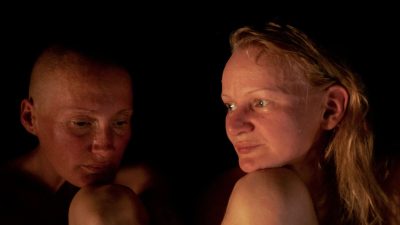
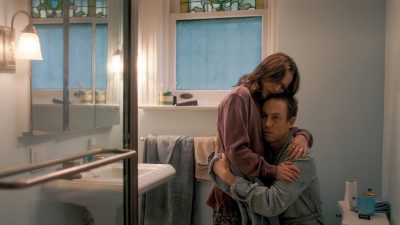

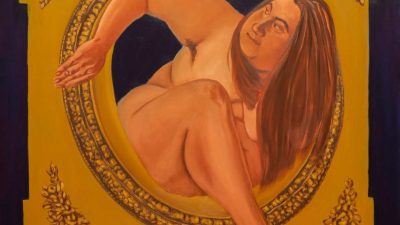
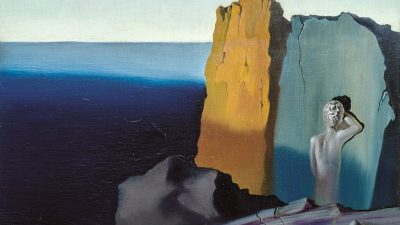



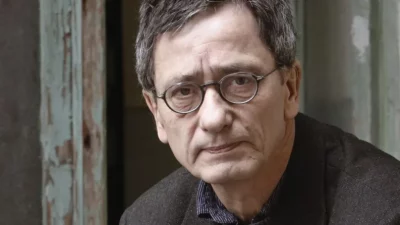



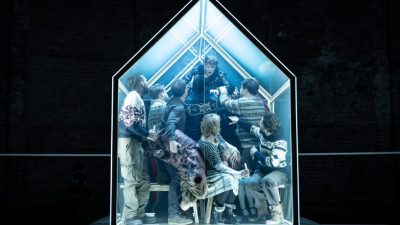
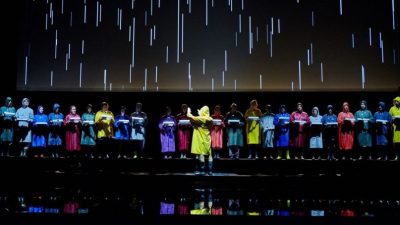


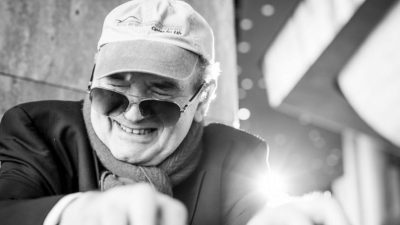


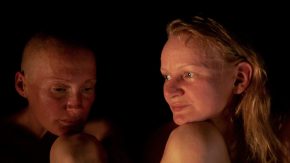

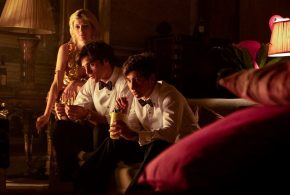
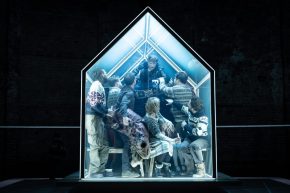
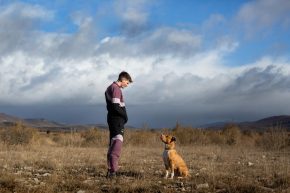
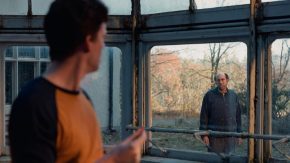
Comments